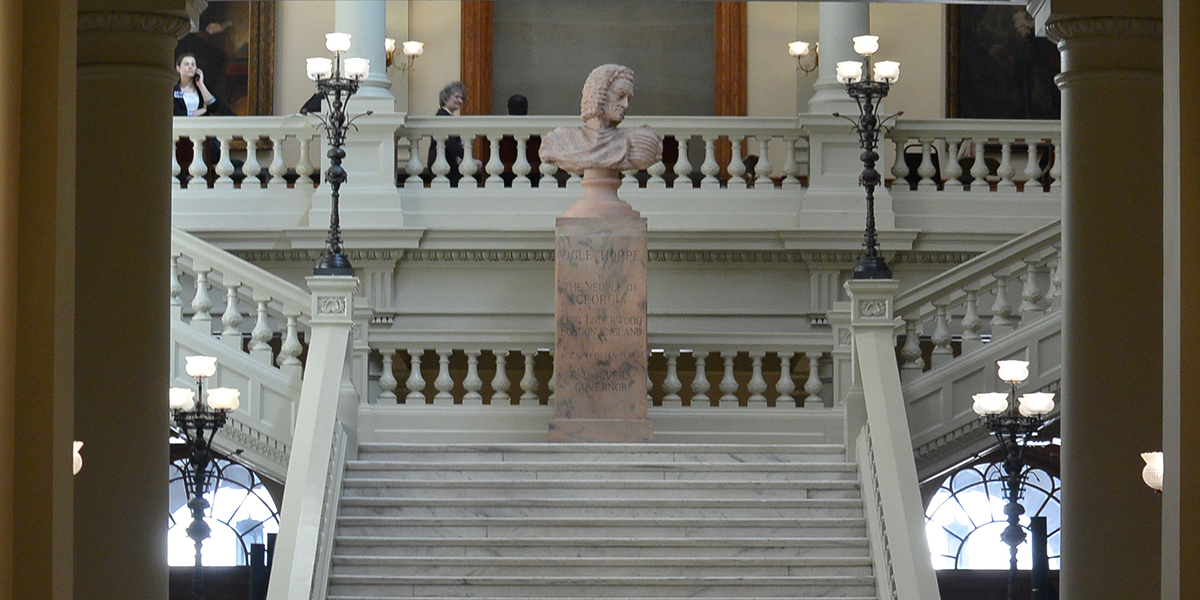Georgia Senate Passes Religious Exemptions Legislation

On Friday, the Georgia Senate passed legislation that would allow faith-based organizations to deny services to same-sex, straight and unmarried couples after hours of debate prolonged by Democrats anxious to speak against a bill they say discriminates against LGBT people.
The legislation combines two bills: What’s been labeled the “Pastor Protection Act” and the First Amendment Defense Act.
The “Pastor Protection Act,” which was meant to reassure clergy they would not be forced to perform same-sex marriages, passed overwhelmingly in the Georgia House without major objections from LGBT advocates or the business community.
In a matter of days, it was combined with the First Amendment Defense Act — FADA — which would allow religious nonprofits to deny services to same-sex marriages. FADA has received persistent criticism from lesbian, gay, bisexual and transgender advocates who say it’s state-sanctioned discrimination.
“We as a state are full of hospitality and we have room for all people. This legislation is about equal protection and not discrimination,” said Sen. Greg Kirk, R–Americus, the sponsor of the FADA bill.
In the committee where the FADA bill was combined with the “Pastor Protection Act,” Kirk called it a “compromise” between the business, religious and LGBT communities.
But Georgia’s hospitality industry and the Metro Atlanta Chamber are concerned passing the bill would make the state appear inhospitable.
“We believe that treating all Georgians and visitors fairly is essential to maintaining Georgia’s strong brand as the premier home for talented workers, growing businesses, entrepreneurial innovation, and a thriving travel and tourism industry,” reads a statement from the Metro Atlanta Chamber.
On Friday afternoons, Georgia’s part-time lawmakers typically try to leave the Capitol in the early afternoon, many live hours away from Atlanta and return home over the weekend.
But speeches from many Democrats held off a vote on the hybrid bill.
Democratic state Sen. Gloria Butler from Stone Mountain compared the potential effect of the bill to her own experience of racial discrimination.
“As I was growing up I was told I couldn’t go to Woolworth’s and sit at the counter to eat,” she said. “But then when I finally went I was disappointed. The stools were raggedy; the food wasn’t good. But it wasn’t even about that. It was about the color of my skin.”
Senate Majority Leader Bill Cowsert, R-Athens, wrapped up the debate.
“So I’d like for everybody to just take a deep breath and settle down on this issue. It’s not about discrimination,” he said.
The bill now moves to the House, where leadership so far has been unwilling to take significant action to expand religious exemptions in Georgia.
9(MDAxODM0MDY4MDEyMTY4NDA3MzI3YjkzMw004))







